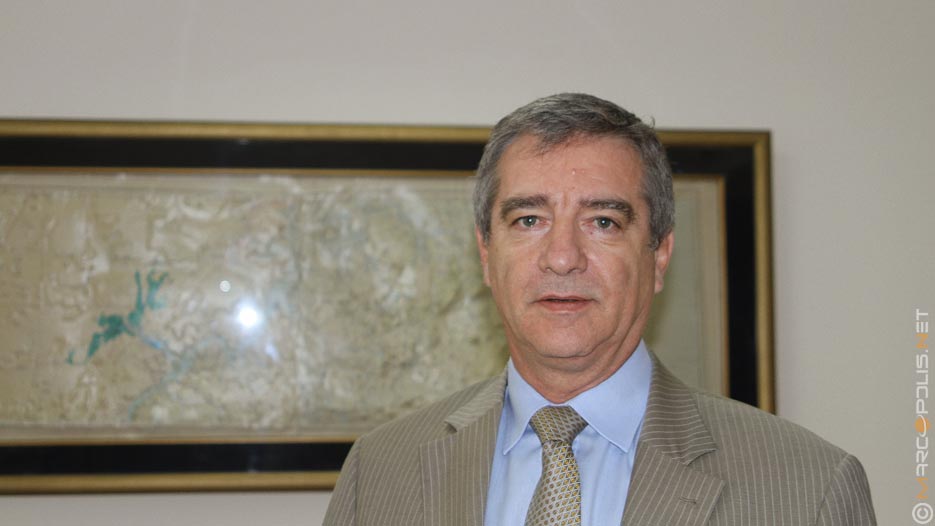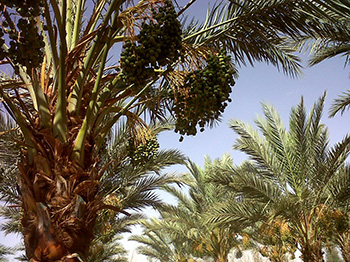Farming in Egypt: Sourcing skilled workforce is a challenge according to KADCO
“Our target is to finish this project over the next five years. It will cover a total of about 25,000 acres, growing mostly wheat, corn, alfalfa and barley and a little bit more table grapes and dates,” reveals Daniel Leroux, CEO of KADCO Egypt.
Interview with Daniel Leroux, CEO of KADCO Egypt

Could you give us your assessment of the agricultural sector in Egypt? How has the sector been affected by the recent political turmoil?
In Egypt, there are different agricultural segments. More or less 80% of the cultivated land in Egypt is farmed by traditional small farms for subsistence agriculture targeting the local market. The other segment is represented by the big farms that were created in the late 60s and 70s. These farms cover areas of several hundred when not thousand hectares and are dedicated either to production for exports, particularly of fruit, potatoes and onion, or to the industrial sector producing crops such as sugar beet and potatoes. Our company is involved in the large agricultural development segment to supply both the local market and to export.
I think that the agricultural sector was not affected too much by the political turmoil because Egypt is a big country with many people to feed. Agriculture and agribusiness have been consistently strong during the past eleven years that I have been working here. I believe that the sector will remain strong in the coming years also.

KADCO was established in 1998 to buy 100,000 acres of land for farming in the southern Egypt Toshka region. How has this project progressed?
Right after the revolution, we gave back 75% of the project to the government. That means that our farm is now just 25,000 acres. Of that area, almost 3,500 acres are developed. We are now starting a new development of 6,500 acres that should be completed within a year and a half. We will continue to develop the land until we complete the total of the 25,000 acres.
Our main target is to cultivate crops such as wheat, corn, alfalfa and barley mostly for the local market. Besides this, we have a small production of 100 hectares of table grapes that we export to Europe. We also export dates. We have about 50 hectares of dates so far and we are planning to plant a bit more. We cultivate medjool dates, which are high value dates that for the time being we export to the Middle East, Europe and Australia. These are our major activities we are also studying a beef fattening project. We are aiming to have developed the whole project within four or five years from now.
What are the challenges that you face on a daily basis?
We are cultivating in the desert in the middle of nowhere, about 50km from the Sudanese border. There are many challenges. I would say that a major challenge is the soil. The soils are very erratic and are not homogenous at all which means you need to select the soil carefully before you begin to do anything. We always carry out a full mapping of our soils by digging holes and examining the soil profile to make sure that we can grow something there.
The next challenge is the climate; here it can reach 50°C in the summer and 0°C in winter. Therefore, we have 50 degrees Celsius of variation, which means we have to select the type of crop we want to plant very carefully and plan the exact time for plantation. We are able to cultivate two times per year, usually we plant barley and wheat during the winter and corn during the summer.
There are a great number of people in Egypt, so in theory there is a large available workforce. The challenge is education and training, to make sure those people are able to deliver the productivity that the company needs.
Another challenge is that it can be quite difficult to find workforce. As I said before, we are in the middle of nowhere, 1,200km from Cairo and so it can be difficult to bring people to work on the farm. This is why we are opting for more mechanised agriculture instead of growing more fruit and vegetables as we used to do, due to the difficulties in sourcing labour.
What is your personal vision for the company and for Egypt in the coming years?
As I mentioned our target is to finish this project over the next five years. It will cover a total of about 25,000 acres, growing mostly wheat, corn, alfalfa and barley and a little bit more table grapes and dates. We are not looking to buy more land.
I believe there are great opportunities in Egypt. As I mentioned before, there are a great number of people in Egypt, so in theory there is a large available workforce. The challenge is education and training, to make sure those people are able to deliver the productivity that the company needs.
I would say that the main problem comes from the very small farms that exist on the delta because every time there is a succession, those farms are divided again. They need to find new land outside of the delta such as in Toshka, East Oweinat and North Sinai etc. In Egypt, as long as you have water, you will have no problems at all. The key issue is water. If you can find underground water or you have access to the Nile River, then you can grow whatever you want.
What would you identify as the main opportunities with regard to the agriculture in Egypt?
In agriculture, I think there are plenty of opportunities for the future because Egypt currently imports many of its food products. It is the biggest importer of wheat in the world, importing 11 million tonnes every year. Egypt also imports 5 to 6 million tonnes of corn and there is demand for many other products such as meat, fish, oil, sugar etc. Thus, we need to develop our agricultural sector further in order to try to compensate for these imports, which require a lot of hard currency and make the country very dependent. The target is to try to be more and more self-sufficient. With a growing population, it is going to be difficult but there is a lot of room for progress.
FAIR USE POLICY
This material (including media content) may not be published, broadcasted, rewritten, or redistributed. However, linking directly to the page (including the source, i.e. Marcopolis.net) is permitted and encouraged.